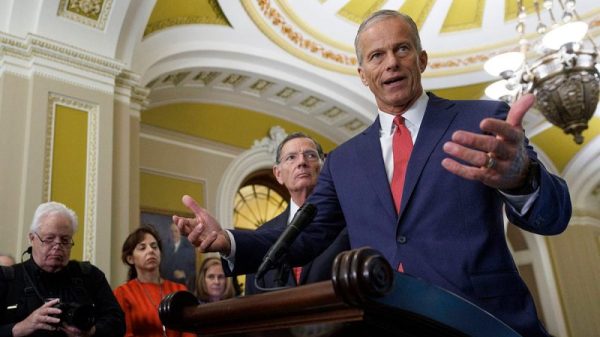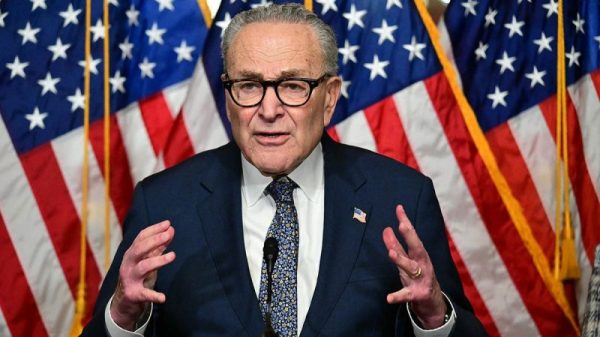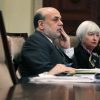
By Jamie McGeever
ORLANDO, Florida (Reuters) – Spiking Treasury yields and the ‘wrecking ball’ dollar are creating a negative feedback loop that monetary authorities around the globe may be helping to sustain.
The U.S. bond market selloff that began after the Federal Reserve started cutting interest rates four months ago has been as powerful as it has been surprising, splitting expert opinion on what is driving it.
Potential culprits include strong U.S. growth, sticky inflation, debt and deficit fears, as well as uncertainty surrounding incoming U.S. President Donald Trump’s trade, immigration and ‘America First’ economic agenda.
What has garnered less attention, however, has been the role of foreign central banks, particularly in emerging economies.
Rising U.S. yields have lifted the dollar and simultaneously pushed down many emerging currencies, sometimes to record lows, prompting many central banks to intervene in the foreign exchange market to support their currencies. This typically involves selling FX reserves, often U.S. Treasury bonds or bills, and buying local currency.
The latest New York Fed breakdown of U.S. Treasury ‘custody’ holdings on behalf of foreign central banks, is revealing.
Custody holdings last week stood at $2.85 trillion, the lowest since April 2020. They have fallen almost $100 billion from the $2.94 trillion in mid-September when the Fed started cutting interest rates, and this decline has gathered pace since the U.S. presidential election in early November.
Central bank selling has been a key component of the recent bond rout, according to research by Rashad Ahmed, senior economist at the Office of the Comptroller of the Currency, and Alessandro Rebucci, professor at Johns Hopkins University.
They note that the decline in foreign FX dollar reserves beginning in September “aligns precisely” with the steep rise in 10-year yields. They estimate that foreign central banks’ dollar reserves have fallen by a combined $113 billion, including foreign repo deposits, just as yields have rocketed by more than 100 basis points.
This selling has often been met with weak demand from counterparties, most notably domestic and foreign private investors, they argue.
“It is possible for even a small reduction in the U.S. dollar share of foreign reserves to have a significant short-run impact on U.S. Treasury markets,” they wrote on Wednesday.
ROCK & A HARD PLACE
Many central banks, especially in emerging economies, thus find themselves between a rock and a hard place. Selling dollar-denominated Treasuries helps shore up a deteriorating domestic currency, but all else being equal, also helps lift U.S. yields, which burnishes the dollar’s allure and sustains the negative feedback loop.
Official data from India, Brazil and China, three of the biggest emerging economies and holders of FX reserves, show that all have reported notable declines in their FX reserves recently.
India’s FX reserves topped $700 billion in September but have since fallen by $60 billion, or around 8.5%, as the central bank has fought to defend the rupee, which has fallen to record lows against the dollar.
Brazil’s reserves tumbled $28 billion in December alone, a record nominal fall and the biggest monthly percentage decrease in almost two decades. This heavy central bank intervention occurred after a perfect storm of global and local issues pushed the real to an all-time low against the dollar.
And China’s reserves, the most closely watched of all, fell $64 billion, or 2%, in December, the most since April 2022. Again, this decline was prompted by the central bank’s need to counter strong capital flight and a depreciating currency.
One of the fears shrouding the global financial system in the 2000s was the threat of China dumping its vast holdings of Treasuries if U.S.-Sino relations deteriorated sharply.
This ‘balance of financial terror’, as former U.S. Treasury Secretary Larry Summers labeled it, never tipped over the edge, and the threat today is probably not as severe. China’s nominal holdings of Treasuries are the lowest since 2009, the U.S. bond market has swelled to $28 trillion, and Beijing’s share of that market is the lowest since 2002.
Still, if Ahmed and Rebucci are right, foreign central banks can wield meaningful power over the U.S. bond market even if they have no intention to push up yields. This vicious cycle may not lead to ‘financial destruction, but it could create a decent amount of financial pain in the months ahead.
(The opinions expressed here are those of the author, a columnist for Reuters.)
(By Jamie McGeever; Editing by Christina Fincher)

































